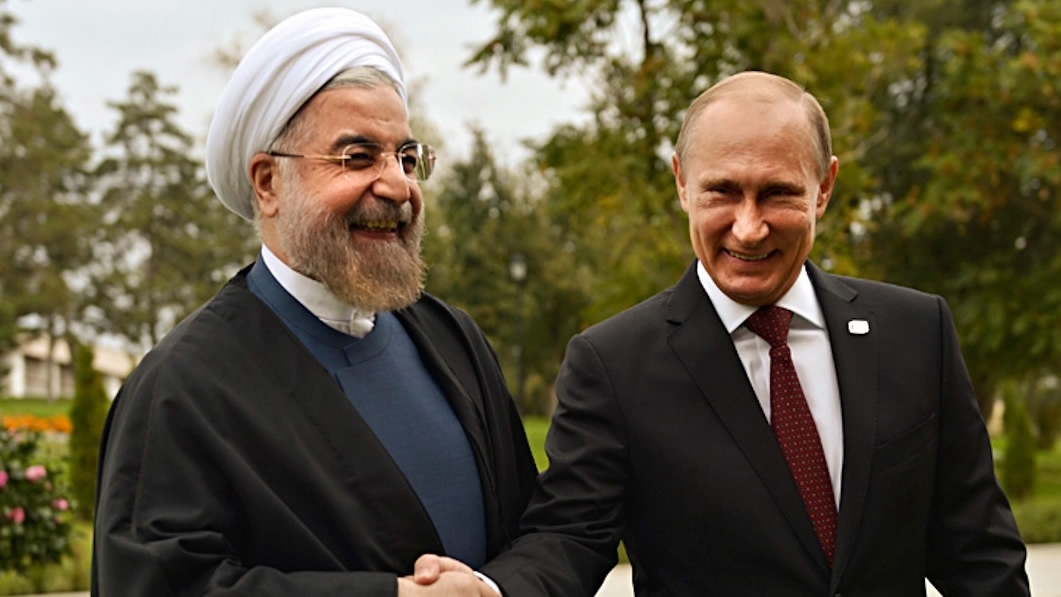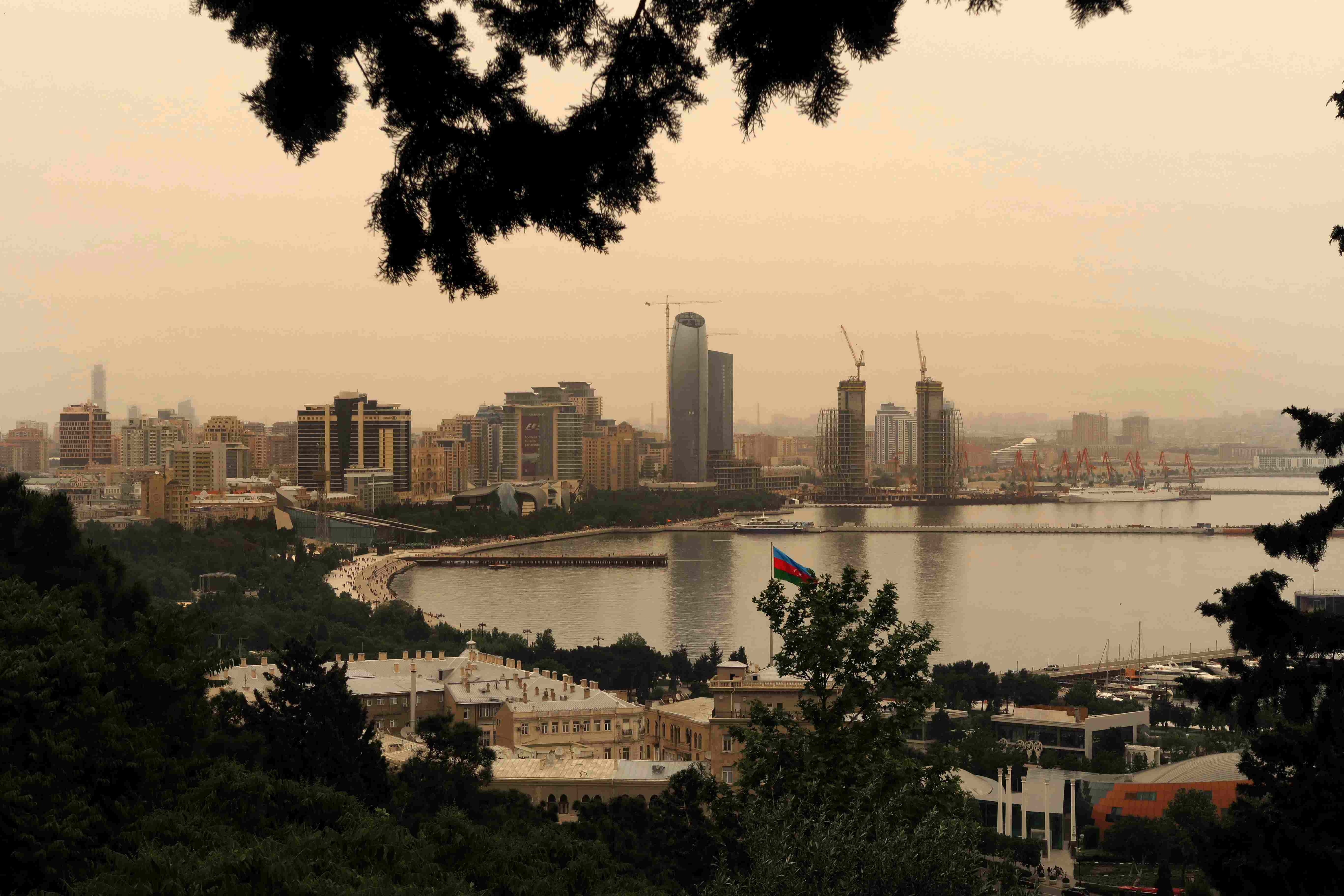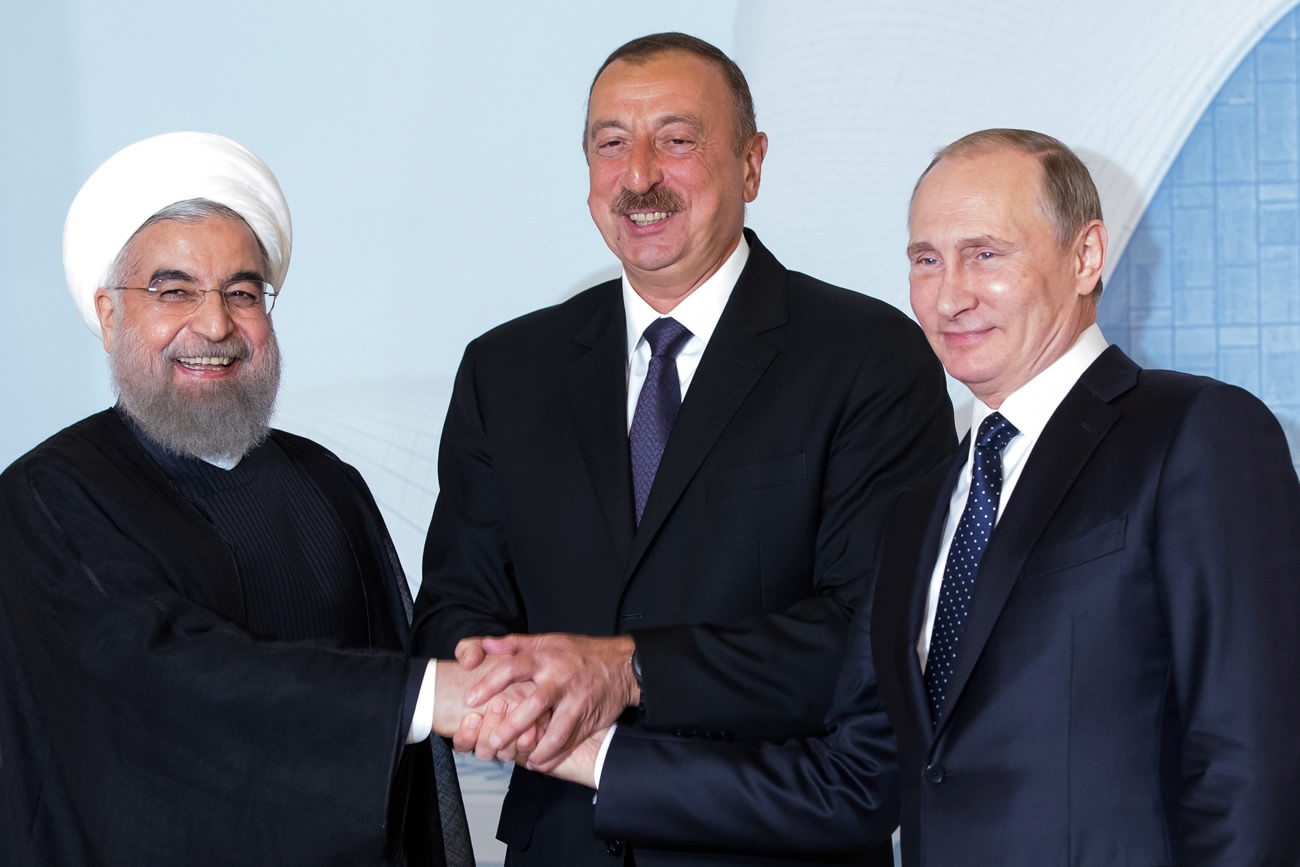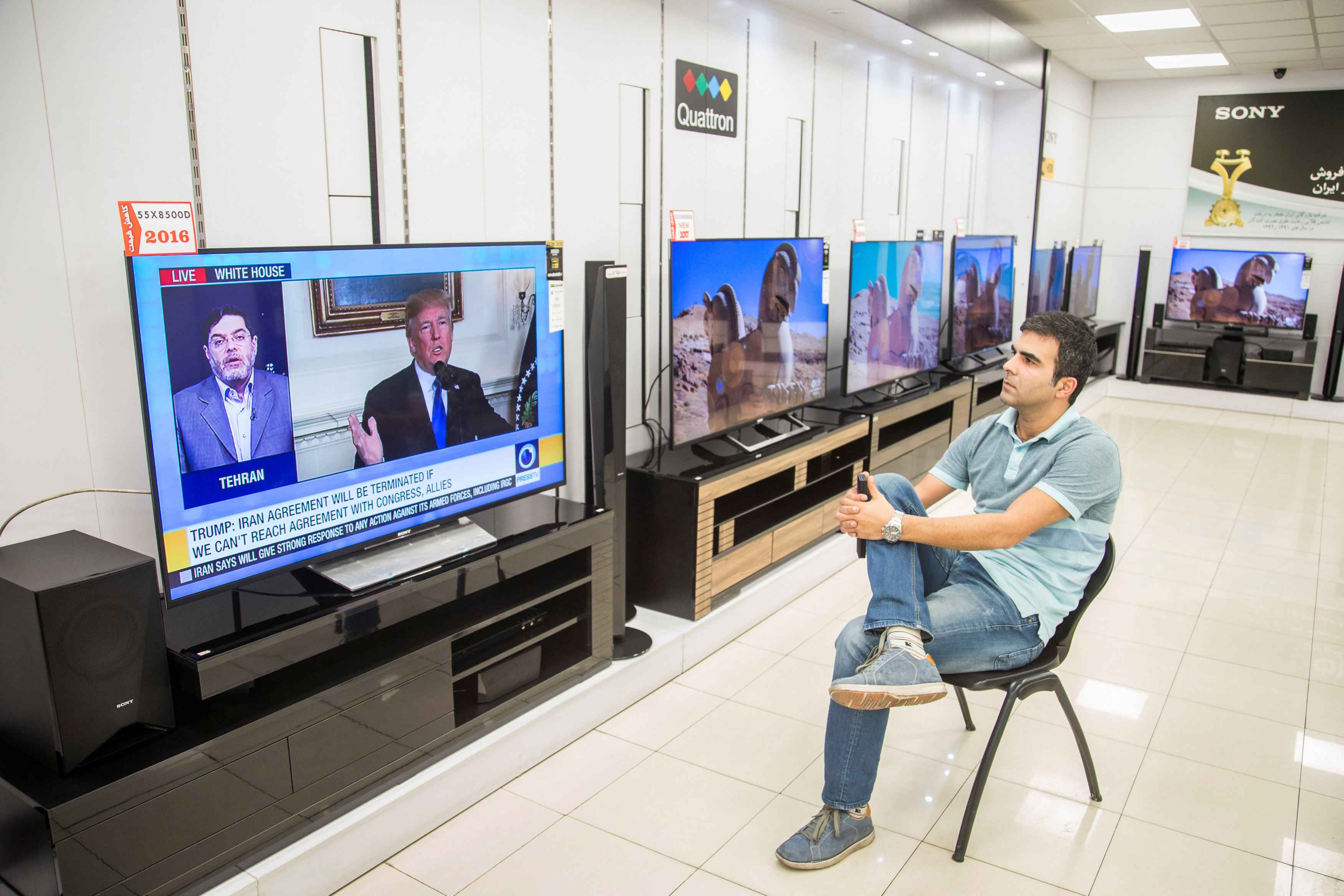
World
17:19, 30-Oct-2017
Putin’s Iran visit puts spotlight on Caspian Sea, Middle East politics
By Abhishek G Bhaya

Russian President Vladimir Putin’s visit to Iran this Wednesday gains significance as it comes just weeks after US President Donald Trump "decertified" the 2015 Iran nuclear deal threatening to entirely pull out of the multilateral agreement.
Both Russia and Iran are Caspian Sea littoral states and also have concurrent interests in the Middle East politics, and their common approach in both regions have made them natural allies while at the same time pitting them in an adversarial role against the West.
Ties between Russia and Iran have witnessed a significant upsurge following Hassan Rouhani’s election as the Iranian president in 2013, possibly driven by both nations’ common strategic interests and their mutual distrust of the US-led West.
This will be Putin’s third visit to Iran since Rouhani took charge and his fourth overall. In fact, the Russian president was the first international leader to travel to Tehran after Rouhani’s 2013 victory and this week’s visit will be Putin’s first after the Iranian president was inaugurated for his second term this August. Putin was last in Tehran in 2015 for the Gas Exporting Countries Forum.

A general view of Azerbaijan's capital Baku and the Caspian Sea on May 20, 2017. /AFP Photo
A general view of Azerbaijan's capital Baku and the Caspian Sea on May 20, 2017. /AFP Photo
The Russian leader's first-ever visit to the Persian Gulf country was in 2007, to attend a multilateral conference of Caspian Sea littoral states.
Earlier this March, Rouhani made his first official visit to Moscow as president, when both countries signed 14 pacts on a range of security, economic, scientific and cultural issues. At that time Putin highlighted that bilateral trade had increased 70 percent compared to last year. Banking officials from both countries discussed creating a joint bank account to facilitate trade in rubles and rials, which could further boost trade.
New trade route to be discussed
During his forthcoming trip to Tehran, Putin will attend a trilateral summit with Rouhani and Azerbaijani President Ilham Aliyev in Tehran. The summit is seen as a continuation of a trilateral meeting in Azerbaijani capital Baku in August 2016, where the three leaders discussed a new transport corridor and other economic projects in the Caspian Sea region.
Last year’s summit was held after a ceasefire was brokered between Azerbaijan and Armenia over the Nagorno-Karabakh region in the southern Caucasus claimed by both.
The Caspian Sea basin’s huge energy resources, geopolitical location, and conflicts have made it a natural candidate for major power politics. Moscow and Tehran have taken a shared view of the security of the Caspean Sea region including resolving conflicts such as Nagorno-Karabakh.

From left: Iranian President Hassan Rouhani with his counterparts from Azerbaijan, Ilham Aliyev, and Russia, Vladimir Putin, during their meeting in Baku, Azerbaijan, on August 8, 2016. /AP Photo
From left: Iranian President Hassan Rouhani with his counterparts from Azerbaijan, Ilham Aliyev, and Russia, Vladimir Putin, during their meeting in Baku, Azerbaijan, on August 8, 2016. /AP Photo
One of the primary objectives of the trilateral summit is to discuss issues related to a new trade route described as the North-South Transport Corridor (NSTC) part of which will pass along the western coast of the Caspian Sea, from Russia to Iran through Azerbaijan.
The 7,200-kilometer St. Petersburg-to-Mumbai NSTC has been envisioned as a route to transport goods from India, Iran and other Persian Gulf countries to Russia via the Caspian Sea and on towards northern and western Europe. Experts have speculated that NSTC could compete with the Suez Canal as a major regional transport corridor.
“Even after the breakup of the Soviet Union in 1991, Iran has remained Russia’s neighbor across the Caspian Sea. With over 2,500 years of mostly unbroken statehood, Iran is virtually a permanent fixture in the otherwise highly volatile environment south of the Russian border. Whatever the regime in Tehran, Russia needs a relationship with it,” Dmitri Trenin, director of Carnegie Moscow Center wrote in his report on Russia-Iran partnership.
“As Russia seeks to build economic ties to the countries in the Middle East, North Africa, and South Asia along a north-south axis, Iran is a key transit country,” he added.
Strategic partners in the Middle East
The Iran-Russia relations, which observers say have ushered into a new strategic phase, may have a regional and global impact.
In the context of Middle East politics, Iran as a regional power and ally of Russia, and also as a major energy producer, has been playing a substantial role. The recent conflicts in Syria and other parts of the region too have necessitated a role for the country. Tehran’s geopolitical location, and also its proximity to another conflict-hit nation Afghanistan, gives the Islamic state a say in regional and international politics.
“To Russia, Iran has been a valuable geopolitical ally in a number of areas, including Afghanistan, Syria, and the southern areas of the former Soviet Union. In Syria, Iran and its Hezbollah allies have provided forces on the ground in support of the government in Damascus, along with significant financial support, while Russia provides Damascus with air support, artillery, and intelligence, as well as arms, material, and diplomatic cover,” Trenin said in his report.
“In its decades-long confrontation with the United States since 1979, Iran has proven its resilience. A Shiite, non-Arab Iran is a loner in a Middle East characterized by countries largely populated with Sunni Arabs, but Moscow recognizes that there can be few lasting outcomes in the region without Tehran’s participation or consent,” he added.
Mutual distrust of the US, West

A man watches a television broadcast of US President Donald Trump's speech about Iran's nuclear deal, in Tehran, Iran, on October 13, 2017. /Reuters Photo.
A man watches a television broadcast of US President Donald Trump's speech about Iran's nuclear deal, in Tehran, Iran, on October 13, 2017. /Reuters Photo.
Russia has become an increasingly prominent economic and political partner of Iran in recent years as both countries have been targeted by Western sanctions, laying grounds for their mutual distrust of the US-led West.
Russia has also been targeted in the United States for its alleged role in meddling with last year’s presidential election that saw Donald Trump being voted to power.
Last Friday, a reluctant Trump administration belatedly published a list of Russian firms and agencies to comply with a new sanctions law, which has been imposed to punish Moscow for its meddling in Ukraine and alleged interference in US politics.
Moscow called the sanctions a declaration of "economic war" with Trump admitting relations with Russia had hit an all-time and “very dangerous” low.
Iran, on the other hand, had faced decades of sanctions over its nuclear and missile programs before striking a deal with global powers in 2015. While Tehran was hoping for the lifting of sanctions entirely following the landmark nuclear deal, Trump’s recent decision to decertify the deal has put the multilateral accord itself at risk.
Trump said he believed Iran’s “radical regime” has committed multiple violations of the agreement.
On Sunday Tehran’s position was vindicated with the head of UN nuclear watchdog confirming that Iran was carrying out its commitments made under the landmark deals, putting in serious doubt Trump’s assertions and US's credibility.
The Russian president, meanwhile, has maintained that he will continue to support the Iran nuclear deal, despite suggestions that White House may withdraw its support. “We are going to support this deal,” Putin said earlier this month. “We are going to support the deal concluded with the previous US administration, although as you know we had many differences with them on other issues.”
Russia has warned that abandoning the nuclear deal would be a huge blow to international relations and non-proliferation efforts.
After the 2015 deal was put into effect, Moscow also sold advanced weapons to Tehran including the S-300 missile systems.
Iran's President Rouhani on Sunday said his country would continue building weapons including developing missiles after the US Congress last Thursday passed new sanctions against Tehran.

SITEMAP
Copyright © 2018 CGTN. Beijing ICP prepared NO.16065310-3
Copyright © 2018 CGTN. Beijing ICP prepared NO.16065310-3